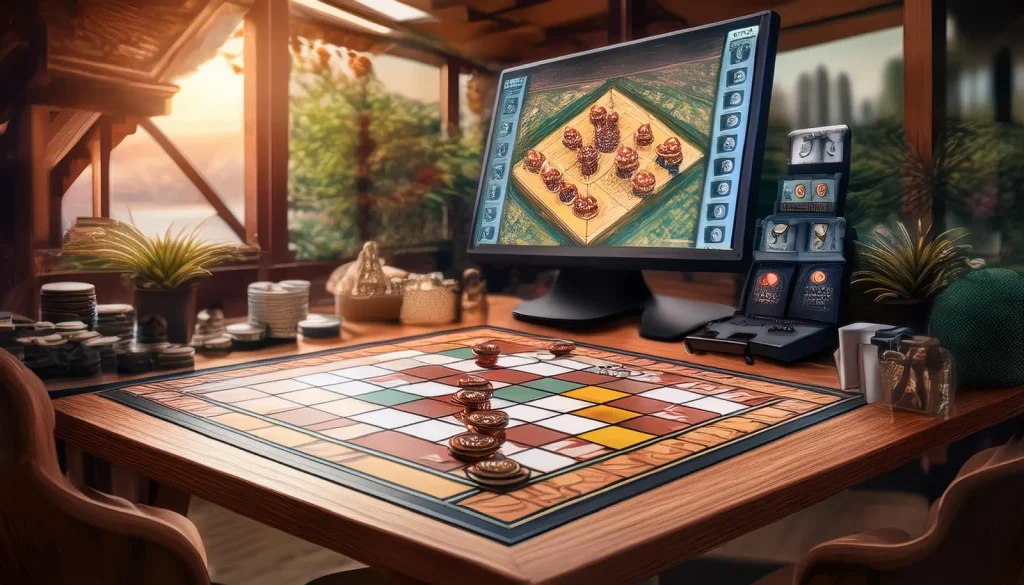Nowadays, video games are one of the most popular forms of entertainment, offering a variety of experiences to suit everyone’s tastes – from dynamic shooters and complex role-playing games to relaxing simulators and puzzles. One key distinction in the gaming world is the division between online games and traditional (offline) games. Both forms provide unique experiences, but they also have significant differences. Let’s explore what sets them apart.
Availability and Connectivity
One of the fundamental differences between online games and traditional games is the requirement for an internet connection. Online games require active internet access, enabling real-time interaction with other players, participation in global leaderboards, or attending live events such as virtual concerts in Fortnite or major esports tournaments like The International in Dota 2. In contrast, traditional games usually don’t require an internet connection, allowing players to enjoy them anywhere and anytime without worrying about network issues.
Interaction with Other Players
Online games are characterized by the ability to compete or cooperate with other players. Features like chat, voice communication, or shared missions create unique communities within these games. Examples include MMORPGs (Massively Multiplayer Online Role-Playing Games), where players explore virtual worlds together.
In traditional games, interaction with others is often limited to multiplayer modes on the same device (e.g., on a console or computer). In single-player games, the experience revolves around interaction with the game’s story and world rather than other players.
Gameplay and Dynamics
Gameplay in online games is often dynamic and ever-changing. Regular updates, new content, and live events keep these games fresh over time. Titles like Fortnite, League of Legends, and World of Warcraft frequently add new elements such as additional maps, new characters, or unique seasonal events, encouraging players to keep coming back.
On the other hand, traditional games usually offer a closed narrative structure or a limited number of levels. Once the game is completed, players can return to improve their scores or explore alternative endings, but the content generally remains static.
Costs and Business Models
Online games often follow a free-to-play model with microtransactions. Players can download the game for free, but additional features, skins, weapons, or upgrades are available for purchase. Games like Genshin Impact and Apex Legends are examples of this approach.
Traditional games are often sold as a one-time purchase. Players buy the game in a physical or digital format and gain access to all its content without additional fees. However, exceptions exist, such as DLCs (downloadable content), which allow for extended gameplay.
Longevity and Technical Support
Online games require constant support from developers to keep servers running and the game updated. Unfortunately, when support ends, the game may become unavailable.
For traditional games, players own a product that remains functional without the need for further updates or support. This means they can be enjoyed years after release, provided the hardware supports the game.
Impact on Society and Lifestyle
Online games promote social interactions but can also lead to an over-reliance on virtual worlds. The constant connection to the internet may create pressure to stay updated and not miss any in-game events.
Traditional games offer a more intimate experience, allowing players to relax and focus on the story or mechanics without feeling pressured. A great example is The Witcher 3: Wild Hunt, which delivers a deep narrative and a rich world, enabling players to fully immerse themselves in the story. Sometimes, traditional games are seen as a “healthier” form of entertainment, especially when they encourage multiplayer gameplay in a home environment.
Conclusion
Both online and traditional games have their advantages and disadvantages. Online games offer dynamic, social gameplay with constantly changing content but require a stable internet connection and can incur additional costs. Traditional games provide independence from the internet, stable gameplay, and no time pressure, making them a better fit for players who prefer a more relaxed form of entertainment.
The choice between these two types of games depends on individual preferences, lifestyle, and expectations from gaming as a pastime. Regardless of the choice, the gaming world offers endless possibilities that can be tailored to anyone.

